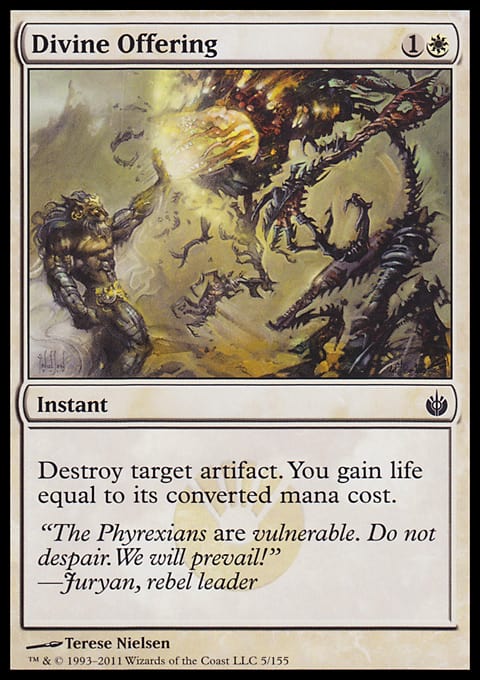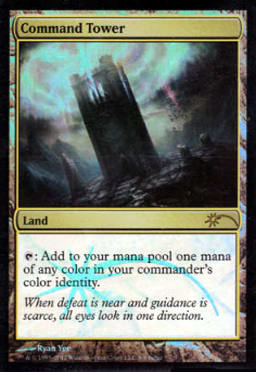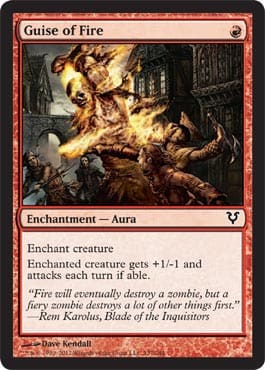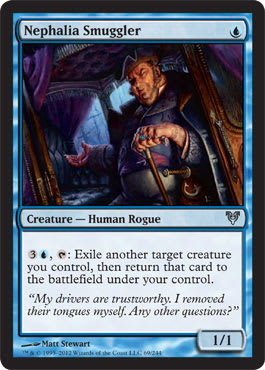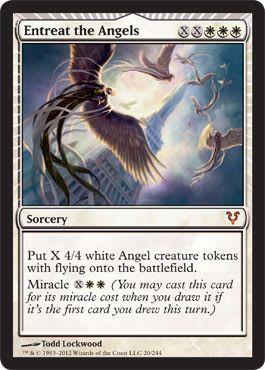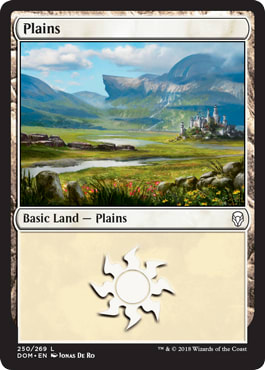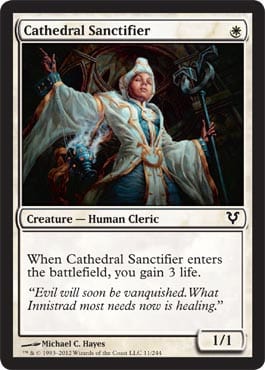“I did really bad at the first PTQ, but in today’s, I started off really hot but picked up a loss in the fifth round and got knocked out before my win-and-in round.”
“At least you’re making some forward progress.”
“Exactly.”
I am on the phone with my girlfriend Emily. I am in my friend Brad’s guest bedroom at his house in Atlantic City. It’s a Sunday night, something like 11:30 P.M. We just got back from two consecutive days of Pro Tour Qualifiers. The first one, on Saturday, was in the basement of an Elks Lodge in Paramus, New Jersey. During the half-hour lunch break, we almost die approximately seventeen times on the perilous Route 17 in search for some Moe’s Southwest.
I go 0–2, Brad, 1–2. Our friend Rob Vaughan is X–1–1 but is eventually knocked out of contention by Pro Tour winner Osyp Lebedowicz. In today’s tournament, I start off 3–0, which turns into 3–0–1 when my first game against a R/U/G Delver player goes long, which turns into 3–1–1 when I keep two lands and two Delver of Secrets against R/U/G Pod in Game 2 and never see a spell or a third land.
This eventually turns into a 4–2–1 drop when my Delver opponent cold-reads me for my singleton Divine Offering. Brad goes 6–0, but since the other 5–0 match drew, he is the lone X–0 going into the seventh round, and subsequently runs into two nightmare matchups for his R/U/G Pod deck—Frites and Wolf Run, the latter of which is unable to draw into Top 8 at X–0–2—and finishes the tournament in tenth place.
It has been a long day.
“It’s just nice to get away from FNM and play some real Magic for a change. The matches were stressful, but it was a kind of stressful I haven’t felt in a while. It’s weird sitting across from a complete stranger and imposing your will on them.” After hearing that phrase coming out of my mouth, I get the sense Emily is indulging me—it’s a fucking children’s card game—so I whip out the calculated-detachment card. “It’s kinda cool, I guess.”
There’s a pause. Three hundred miles away, I can sense Emily is searching for the words to use.
“I don’t think I quite get FNM.”
“What do you mean?”
“I mean, like, why aren’t FNMs like PTQs?”
“Hm. I think people just want to have fun.”
“But you just said yourself that the stress of high-stakes competition was fun.”
She got me there. “Yeah, but I don’t think everyone thinks of the competition as fun.”
There is an unspoken, subconscious agreement between the two of us that I am venturing into Shitty Argument Land, where I know what I think, but it doesn’t quite sync up with the words that are coming out of my face. I venture into that place quite a bit.
“But isn’t that what Magic is? A competition? I mean, you’re trying to kill your opponent, right?”
With Duels of the Planeswalkers, Wizards of the Coast has crafted the perfect way for casual players to be able to go into an FNM, and even if they may not have the cards to compete, they all know the rules fairly well and don’t just get blown out when their opponent pulls some shenanigans with, ahem, damage on the stack.
That leaves the transition from FNM to PTQs. I feel that perhaps Wizards designed this transition to be a slow one. Players get throttled at FNM for a substantial amount of time, and FNM is the place where they figure out what they actually like about Magic. Because when you first pick up Magic, it’s just a game like any other game.
You like it. You don’t know why, but you like it. And at your weekly tournaments, you probably keep being beaten by the same people every week. This usually elicits two reactions: You’re either curious to figure out how they got so good at this game and want to get on their level, or you’re ambivalent about it and would rather regard the game as a casual thing.
To their credit, Wizards has both of these bases covered. The latter group of players receives Commander support. The former receives PTQs and the pro circuit.
These days, people’s curiosity about Magic usually leads them to the Internet, and in turn, they find out about the Pro Tour, PTQs, and Grands Prix. If they can get over the fact that, “Wow, this children’s card game has a pro tour?” their curiosity will usually be matched by some desire to see where they stack up. That’s where PTQs come in.
But this column isn’t about PTQs, it’s about FNMs and their roles and functions, both intentional and latent, within Magic as a whole. And it’s coming! This article marks week 44, which puts week 52 as sometime in late August. MARK YOUR CALENDARS, PEOPLE.
I’m at my friend’s in Atlantic City for a little more than a week, basically here on what equates to a gamer’s version of a long fishing trip: I’m here to game and hang out with a guy I don’t really get to see all that much.
The twist? Apparently the shop closest to Brad’s place does FNM Drafts. Their FNM Standard tournaments don’t start until midnight, and when you have a PTQ the next day that’s two-and-a-half hours away, you can’t be playing Standard at midnight the night before. So Draft it is!
I was actually pretty excited about this because I’ve wanted to write about Avacyn Restored Draft for a while.
Many players have lauded Avacyn Restored Limited for being very high-variance, which is valid. Miracles are pretty swingy, and while they’re fun to watch as a neutral third party, it’s excruciating to have your opponent flip an Entreat the Angels or a Bonfire of the Damned off the top and blow you out while simultaneously being dead on board.
However, I kinda dig the format. It’s been a while since players have been forced to get creative with regards to stretching the definition of what is playable, and it forces the play of otherwise underwhelming cards such as Fleeting Distraction. However, as PT: Austin winner Brian Kibler pointed out, games tend to be very unfun when one player draws his good spells and the other player draws his “creative solutions” part of their deck. My opinion is that in Avacyn Restored Limited, Draft is fine, Sealed is miserable, and if I were playing for higher stakes than, say, a $20 Money Draft, and I got Bonfired out, I’d flip the table.
I showed up at the shop in Jersey on Friday, ready to draft. The tournament was huge, at least compared to what I’m used to: thirty-four people. We were split up in four pods: two eight-mans and two ten-mans. Our seating method, you ask? We were first divided into pods, then once we were in our pods, we were told to just “sit wherever.” My friend Rob and I were the only ones with any misgivings about this. As I sat in my chair, registering my astonishment, some guy in another Draft, presumably a regular, told me, in an annoyed tone of voice, that “[they] do chill Drafts here, all right?” Okay then!
I ended up drafting this monster:
"U/R Monster"
- Creatures (17)
- 1 Falkenrath Exterminator
- 1 Heirs of Stromkirk
- 1 Kruin Striker
- 1 Latch Seeker
- 1 Nephalia Smuggler
- 1 Somberwald Vigilante
- 2 Gryff Vanguard
- 2 Hanweir Lancer
- 2 Riot Ringleader
- 2 Wingcrafter
- 3 Fervent Cathar
- Spells (7)
- 1 Thatcher Revolt
- 3 Pillar of Flame
- 1 Guise of Fire
- 2 Lightning Prowess
Notable cards I didn’t play but boarded in a lot:
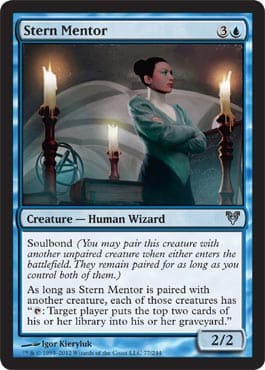 |
At the Avacyn Restored prerelease, I had the sickest U/R Humans deck you’ve ever seen. Unfortunately, it was about eight playables short, but the idea of U/R Humans tantalized me. To me, the curve of Wingcrafter, Kruin Striker, and then your choice of Hanweir Lancer, Fervent Cathar, or Riot Ringleader on 3 is too good to pass up.
I normally like aggro decks with any sort of reach a lot in all formats, and the U/R Humans deck has the power to just totally ignore whatever its opponent is doing with the help of Nephalia Smuggler with Fervent Cathar. God forbid you have a Mist Raven or two on turn four. I mean, as you can see, I didn’t get any Mist Ravens here (I saw zero), but I think my deck’s fine.
I don’t remember what I opened, I just distinctly remember being passed a foil Pillar of Flame and cementing myself in U/R. Opening one more and being passed another did not suck.
I probably boarded out Thatcher Revolt every game. I just wanted to try it out. Thatcher Revolt usually was switched out for either Guise of Fire or Geist Snatch, the latter of which seems very underrated, and absolutely no one really plays around it, which is nice.
Basically, my deck wasn’t broken in half; I’d still have to work for a large portion of my wins.
After the Draft, the guy feeding me, who passed me the foil Pillar of Flame, flashed me the Entreat the Angels he picked over it.
Perfect.
The tournament was to be five rounds. I brought my own lands, but both Brad and Vaughan were forced by the store to give up something as collateral for basic lands. They ended up handing over their car keys. For basic lands. I mean, I’ve had no problem handing over car keys as collateral for four copies of Jace, the Mind Sculptor, but basic goddamn lands? Between this, the random seating, and the fact that a five-round Draft started at 7:30 P.M., I decided that I hated this store. Brad and Rob assured me that the regulars all hate it, too, but that there’s simply nowhere else close for anyone else to go. That has got to suck.
Round 1 – Mike Cifone
The first thing Mike says to me is that he’s new to Magic, which he quickly apologizes for. I smile and say, “Oh wow, you’re new at Magic? I’ve never been new to Magic before. What’s that like?” Mike does not pick up on the sarcasm, so I quickly recant: “Hey, don’t worry about being new; we all started somewhere.” This appears to make him feel a little better. The games do not, though, as I quickly roll his B/R deck. The only creatures he plays all match die instantly to a sea of Guise of Fire and Pillar of Flame.
1–0
Round 2 – Michael Crowell, or, The Guy Who Flashed Me His P1P1 Entreat the Angels
I would later hear that Michael Crowell was the local grinder and that he was very close to scoring an invite to the FNM Championships. He is currently in seventy-sixth in the current FNM season.
He’s playing a W/U deck with a lot of bad cards in it and some mediocre ones. I eschew playing around Entreat the Angels for the entire match because if he resolves it, I’m dead anyway. Plus, there are not many ways to play around a sorcery that just makes a ton of dudes.
In Game 1, he has the mana curve of Cathedral Sanctifier, Angelic Wall, Midnight Duelist, and finally, a Call to Serve on the Midnight Duelist. I keep beating in with Fervent Cathars and Riot Ringleaders. The board eventually comes to a stalemate, but he’s at a low enough life total that my pinging with a Lightning Prowessed Wingcrafter starts mattering quite a bit. At this point, Mike peeks at his top card during his draw step and agonizes over it for a full two minutes before he finally draws it. He has five lands in play, so, yeah, quite the outlandish bluff. I casually say, “I wonder what you drew,” and he just smiles.
We’re in phase three of the game. Mike and I both have a bunch of guys, but his far outstrip mine; he has more guys than I do on top of his guys being better—An Angel of Glory's Rise (that returned nothing), a Moonlight Geist, and a Goldnight Redeemer. I have a grip full of Hanweir Lancer, Lightning Prowess, and land. I am resigned to losing this game, but goddammit, I’m going to make him do it.
Mike attacks me down to 2 life. He’s at 6.
He then casts Terminus.
Now, under normal circumstances, I’d be pretty annoyed about my opponent’s deck having Angel of Glory's Rise, Terminus, AND Entreat the Angels, but how could I be pissed? He just let me back into the game!
After casting the Terminus, he had one card in hand. He then confidently laid down the card, a Plains, and shipped the turn.
When your opponent thinks he has the read on you and then you throw something at him that just doesn’t add up with his computations, it’s fun to watch the look on his face. This is exactly what happened when I put Mike to 4 after casting Hanweir Lancer and Lightning Prowess on it. I don’t know—I just like it. Your opponent starts reading cards, double-checking that Lightning Prowess does indeed give haste, flicking the cards in his hand worriedly, questioning his reality . . . it’s a good time.
He bricks some more times, and I do not lose that game.
Game 2 he wins on the back of Entreat the Angels, and then Game 3, I’m basically playing Legacy R/U/G Delver in Limited—put down early threats, Geist Snatch his Riders of Gavony (!), burn his face out.
2–0
Why, yes—I was happy to beat that deck.
Round 3 – Hepburn Best
Hepburn is the guy who told me during the Draft that we were supposed to keep the nonfoil basic lands in the pack. Hepburn has a picture of a middle-aged woman on his shirt, and it’s a little unnerving. We start chatting a bit, and I ask him if he’s going to the PTQ the next day, which he takes as his invitation to condescendingly say, “Uh oh! Looks like we have a gamer over here!”
Hepburn then proceeds to quickly run me over with a triple–Trusted Forcemage draw. He literally does nothing until turn-three Trusted Forcemage, turn-four Trusted Forcemage, turn-five Trusted Forcemage.
Game 2, I just have two Pillar of Flame for two Trusted Forcemage, and I’m able to race him before he can find his third.
And then . . . the third game.
Oh, the third game.
It’s not even really a game—he keeps a hand with no Forests and never sees one. I even start feeling a little bad for him. With every draw step, he keeps bemoaning his choice: “Gaaaahhhh, I’m sooo bad at this game.” You can’t help but like a guy like that; there are so many Magic players who blame their preventable losses on outside forces that it’s refreshing to see someone actually lay the blame at his own feet for a change.
I smash him with haste guys and put him out of his misery quick. It’s the humane thing to do.
3–0
After the relatively quick beating, Hepburn lays out his deck and shows it to me. There are seven Trusted Forcemages to go with his Bonfire of the Damned.
Yeah, it’s probably safe to say that the players here aren’t that great. I am very happy to have made it past these past two opponents alive.
Between rounds, I ask the tournament organizer how many rounds the tournament will be, and he looks me straight in the face and tells me . . .
“Five.”
Round 4 – Elijah Bracy
Eli is 1–1–1. I am 3–0. How does a pairing such as this happen, you ask?
Apparently, we were supposed to play outside our pods in Round 4, but . . . we didn’t. And I couldn’t ask for the concession or the draw because technically, he could win out, and I could lose out, and he’d beat me. So we play!
Game 1, I mulligan and keep a bad six while he gets me with a Cathedral Sanctifier with Call to Serve on it. I can’t believe I have to admit that on the Internet. Somewhere between games, Hepburn comes over and tells us that there’re only four rounds in the tournament now, which is nice, but he still can’t scoop because my opponent has a chance to make prizes (the final standings are global even though we all only played within our pods) with a win in this match.
In Game 2, I beat him very quickly.
During shuffling for Game 3, the TO calls time in the round. I look at my phone. It’s been a half hour since the round started. I say nothing to the TO, who is gone by that point, and I tell Eli, “Okay. We are going to draw this game. I am going to be knocked out of first, and you are going to get nothing. Do you want to concede to me so at least one of us gets something?” To my immense relief, Eli replied, “Yeah, of course. It doesn’t make sense for me to drag us both down, right?”
4–0, I guess
Everyone in prizes is called up to the counter. Apparently, I made first on breakers, and I won six packs and an Acidic Slime. I asked for store credit instead—I needed new sleeves for the PTQ the next day—and was handed a store credit voucher for $20.
Six packs equals $20, I guess. It’s also worth noting that the entry was $13, so yeah, this store most likely ran this tournament at a massive loss, so I don’t complain about my prize being scaled down because I wanted store credit. I pick up two packs of Dragon Shields and a foil Acidic Slime and get the hell out of there.
I don’t want to dwell on it too much, but that was the worst-run tournament I’ve ever been to in my life.
Before I go, I want to share a deck with you that made Top 8 at last Sunday’s PTQ in Delaware.
"W/B Zombie Pod"
- Creatures (33)
- 1 Leonin Relic-Warder
- 1 Mirran Crusader
- 1 Stonehorn Dignitary
- 3 Blade Splicer
- 3 Butcher Ghoul
- 3 Diregraf Ghoul
- 4 Blood Artist
- 4 Geralf's Messenger
- 4 Gravecrawler
- 4 Phyrexian Obliterator
- 4 Restoration Angel
- 1 Phyrexian Metamorph
- Spells (6)
- 3 Tragic Slip
- 3 Birthing Pod
- Lands (23)
- 10 Swamp
- 5 Plains
- 4 Cavern of Souls
- 4 Isolated Chapel
- Sideboard (15)
- 2 Suture Priest
- 1 Leonin Relic-Warder
- 2 Phyrexian Metamorph
- 2 Divine Offering
- 3 Thalia, Guardian of Thraben
- 3 Nihil Spellbomb
- 1 Stonehorn Dignitary
- 1 Birthing Pod
Podding Geralf's Messenger into Restoration Angel is too much sexy for me to handle. Plus, you get the life combo in the sideboard!?
Here’s how the life combo works!
- You have a Suture Priest and a Leonin Relic-Warder in play.
- You cast Phyrexian Metamorph. Phyrexian Metamorph comes into play as a copy of Leonin Relic-Warder.
- The trigger of Suture Priest and the cloned Leonin Relic-Warder go on the stack. You put the cloned Leonin Relic-Warder trigger on the stack first.
- The Suture Priest trigger resolves. You gain 1 life.
- The enters-the-battlefield trigger for the cloned Leonin Relic-Warder goes on the stack. You target the cloned Leonin Relic-Warder with the ability; since it’s still an artifact because it’s a Phyrexian Metamorph, it’s a legal target.
- The cloned Leonin Relic-Warder leaves play. When Leonin Relic-Warder leaves play, you get to bring the exiled artifact back into play.
- Phyrexian Metamorph comes back into play as a copy of Leonin Relic-Warder.
- Go back to step three, repeat a bunch of times.
And then you have a lot of life, which is nice against all the Pod decks that don’t have any instant-speed spot removal. This deck is the stones, and I absolutely love it.
See you next week!
Jon Corpora
Pronounced Ca-pora














